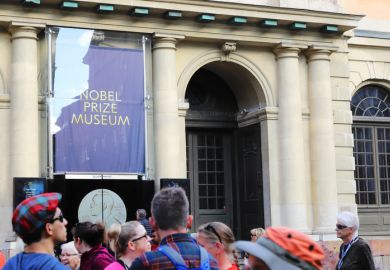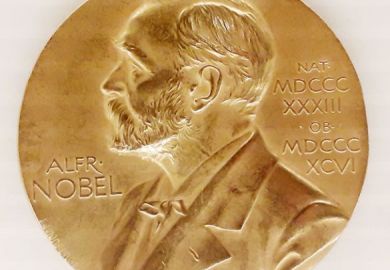The Royal Swedish Academy of Sciences has awarded the 2024 Nobel Prize in Chemistry to three scientists for their work on the structure and design of proteins.
David Baker, a biochsemistry professor at the University of Washington, was recognised “for computational protein design”, while Sir Demis Hassabis and John Jumper, both of Google DeepMind, were honoured “for protein structure prediction”.
Professor Baker employed computational methods to create a new protein, while Sir Demis, the chief executive and co-founder of DeepMind, and Dr Jumper, a senior research scientist at the Google AI laboratory, developed the artificial intelligence program AlphaFold2 in order to predict the structure of “virtually all” identified proteins. Professor Baker will receive half of the Skr11 million (£812,000) prize, while Sir Demis and Dr Jumper will split the other half.
“One of the discoveries being recognised this year concerns the construction of spectacular proteins. The other is about fulfilling a 50-year-old dream: predicting protein structures from their amino acid sequences,” Heiner Linke, chair of the Nobel committee for chemistry, said in a statement. “Both of these discoveries open up vast possibilities.”
Professor Baker’s research group has gone on to produce proteins with applications in medicine and nanomaterials; Sir Demis and Dr Jumper’s work, meanwhile, has enabled scientists to “better understand antibiotic resistance and create images of enzymes that can decompose plastics”.
Artificial intelligence has played a prominent role in this year’s Nobel prize decisions: John Hopfield and Geoffrey Hinton were awarded the physics prize earlier this week for research that formed “the foundation of today’s powerful machine learning”.
Speaking after the award was announced, Professor Baker said he “stood on the shoulders of giants” in order to achieve his breakthrough, the Financial Times reported. “Our new AI methods are much more powerful than traditional scientific model methods. I’m really excited about all the ways in which protein design can now make the world a better place.”
Sir Demis said receiving the Nobel was “the honour of a lifetime” in a statement. “I’ve dedicated my career to advancing AI because of its unparalleled potential to improve the lives of billions of people,” he continued. “AlphaFold has already been used by more than 2 million researchers to advance critical work, from enzyme design to drug discovery. I hope we’ll look back on AlphaFold as the first proof point of AI’s incredible potential to accelerate scientific discovery.”
Campus resource collection: Research excellence - what is it and how can universities achieve it?
Dr Jumper said the duo were “so honoured to be recognised for delivering on the long promise of computational biology to help us understand the protein world and to inform the incredible work of experimental biologists”.
“It is a key demonstration that AI will make science faster and ultimately help to understand disease and develop therapeutics,” he added.
Commending the three new laureates, Ewan Birney, deputy director general of the European Molecular Biology Laboratory (EMBL) and director of the EMBL European Bioinformatics Institute (EMBL-EBI), said tools such as AlphaFold “are built on decades of experimental work and made possible thanks to a culture inside molecular biology of openly sharing data worldwide”.
“The potential of big data alongside AI and technology developments is limitless – and this is the start,” Dr Birney said.
Register to continue
Why register?
- Registration is free and only takes a moment
- Once registered, you can read 3 articles a month
- Sign up for our newsletter
Subscribe
Or subscribe for unlimited access to:
- Unlimited access to news, views, insights & reviews
- Digital editions
- Digital access to THE’s university and college rankings analysis
Already registered or a current subscriber?








